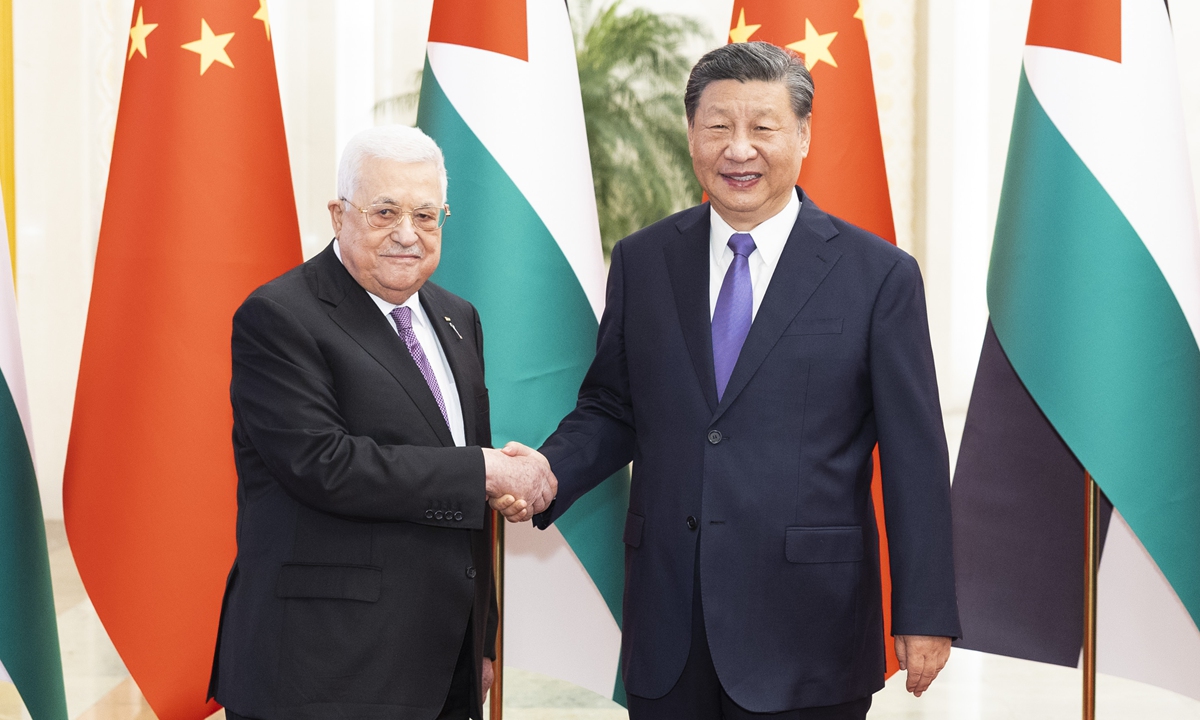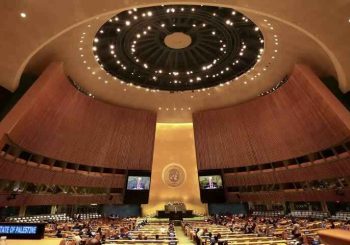Chinese tech giants Baidu and Alibaba found themselves at the center of an international controversy on 30 October 2023 when their mapping services appeared to exclude Israel.
This incident sparked speculation that Beijing was implicitly supporting Hamas in the ongoing conflict with Israel.
Chinese officials quickly clarified that Israel was indeed represented on official maps and that no recent changes had occurred since Hamas’ 7 October attack on Israel. The Chinese Foreign Ministry emphasized China’s neutral stance, asserting respect for both Israel’s right to self-defense and Palestinian rights under international law.
China’s initial response to the Israel-Hamas conflict, urging restraint and a two-state solution without condemning Hamas, contrasted sharply with the firm positions taken by the United States and some European nations.
Under international pressure, Chinese Foreign Minister Wang Yi reiterated support for Israel’s right to self-defense but stressed adherence to international humanitarian law. This stance reflects a slight shift in Beijing’s rhetoric, increasingly sympathetic to the Palestinian cause.
A Downward Spiral
On 25 October, China vetoed a U.S. resolution at the UN, calling for a humanitarian pause that did not address lifting Israel’s siege on Gaza, a move welcomed by many Arab nations.
This response has drawn criticism from Israel. Rafi Harpaz, Israel’s deputy director for Asia and the Pacific, expressed “deep disappointment” over China’s failure to condemn Hamas. Conversely, some Chinese scholars, such as Zhao Guozhong, Wang Suolao, and An Weihu, argue that the friction arises from differing priorities: Israel focuses on the immediate conflict, while China emphasizes a long-term resolution for Palestinians.
China’s neutrality is not a new development but a reflection of a carefully crafted strategic approach to the Middle East that Beijing has honed over the past decade. However, the polarized atmosphere surrounding the Israel-Hamas conflict now poses significant challenges to this balancing act, potentially forcing China into decisions that could disrupt its long-held neutrality.
Since 2012, China has been actively increasing its influence in the Middle East through a policy of “balanced diplomacy” and “positive balancing,” as per the Chinese government. This strategy involves engaging economically with all regional actors while avoiding entanglement in their conflicts.
China’s efforts include forging a comprehensive strategic partnership with Saudi Arabia in 2016 and signing a 25-year cooperation agreement with Iran in 2020. Additionally, China has expanded economic ties with other Gulf states and invested heavily in reconstruction projects in countries like Iraq and Syria. These initiatives culminated in China brokering a rapprochement between Saudi Arabia and Iran earlier this year, positioning itself as a key mediator in the region.
China’s aspirations in the Middle East are not solely about fostering economic relationships; it also aims to position Beijing as a credible and impartial mediator.
The Mediator
Historically, China has supported the Palestinian cause, recognizing Palestine as a state in 1988, while establishing full diplomatic relations with Israel in 1992.
This dual approach has helped Beijing gain favor with Arab nations and the broader Muslim-majority world, reinforcing its image as a balanced power. This support also serves to deflect international criticism of China’s treatment of its Muslim minorities, particularly the Uyghurs in Xinjiang, which Muslim-majority nations have largely remained silent about.
The recent decision to host unity talks between militant groups Hamas and Fatah in April 2024 is a strategic move to consolidate its influence further. By facilitating these talks, Beijing aims to strengthen the Palestinian front, which it views as essential for achieving lasting peace in the region.
China’s interest in a united Palestinian front is driven by several strategic considerations.
Firstly, a unified Palestinian leadership could be a more effective partner in peace negotiations, potentially reducing volatility in the region. This aligns with China’s broader goal of fostering stability to protect its economic interests and investments. Secondly, successfully mediating a Palestinian reconciliation would bolster China’s credentials as a peacemaker, enhancing its soft power and diplomatic clout in the Middle East, thereby positioning Beijing as a counterbalance to U.S. influence in the region.
Economic opportunities also play a crucial role in China’s strategy.
Post-conflict reconstruction in Gaza presents significant economic potential. A unified Palestinian governance structure could facilitate smoother and more efficient cooperation with China on infrastructure projects, further embedding Chinese influence in the region. Additionally, by supporting Palestinian unity, China can strengthen its ties with Arab nations and the broader Muslim world, enhancing its leverage in global forums such as the United Nations. This support can be crucial in rallying international backing for China’s positions on various geopolitical issues.
China’s recent involvement underscores its strategic commitment to these goals. While the immediate outcomes of these talks remain uncertain, Beijing’s efforts to facilitate reconciliation reflect its broader ambitions.
However, the path to Palestinian unity is fraught with challenges.
The deep-seated political and ideological rifts between Hamas and Fatah, compounded by the ongoing conflict, make reconciliation a formidable task. China’s influence, while growing, may not be sufficient to bridge these divides. Yet, Beijing’s continued engagement in this process highlights its determination to play a significant role in shaping the future of the Middle East.







Comments (0)